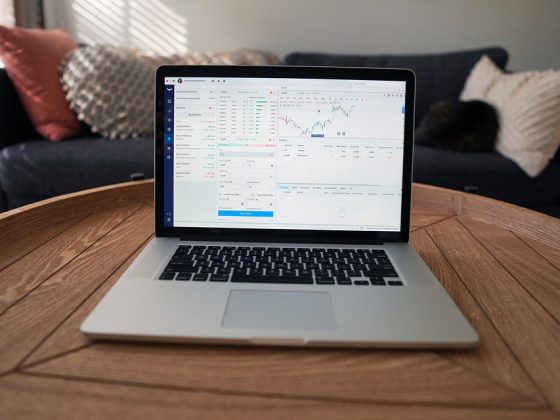The economy can be a daunting place for beginners to navigate. With so many factors at play, it can be overwhelming to understand where to start and how to get ahead. However, with the right strategies and guidance, even newcomers to the world of finance and economics can make significant progress towards achieving financial success. In this article, we will explore essential tips for beginners looking to get ahead in the economy.
1. Develop a Strong Foundation
Before diving into the complexities of the economy, it's essential to develop a solid understanding of basic financial concepts. This includes learning about budgeting, saving, investing, and managing debt. By having a strong foundation in these areas, beginners can make informed decisions and set themselves up for success in the long run.
2. Set Clear Financial Goals
One of the keys to getting ahead in the economy is setting clear financial goals. Whether it's saving for a down payment on a house, paying off debt, or investing for retirement, having specific goals in mind can help beginners stay focused and motivated. It's important to set both short-term and long-term goals to ensure progress is being made consistently.
3. Create a Budget and Stick to It
Creating a budget is a crucial step in managing finances effectively. By tracking income and expenses, beginners can gain insight into their spending habits and identify areas where they can cut back. Setting a budget also helps individuals plan for the future and avoid overspending, ultimately leading to financial stability and security.
4. Educate Yourself on Investing
Investing is a powerful tool for building wealth over time, but it can be intimidating for beginners. To get ahead in the economy, it's essential to educate yourself on the basics of investing, including different asset classes, risk management, and diversification. By understanding these concepts, beginners can make informed decisions when it comes to growing their money.
5. Build an Emergency Fund
Unexpected expenses can derail even the best-laid financial plans, which is why it's crucial to have an emergency fund in place. Beginners should aim to save three to six months' worth of living expenses in a separate account to cover unforeseen costs like medical bills, car repairs, or job loss. Having an emergency fund provides peace of mind and financial security when life throws a curveball.
6. Network and Seek Mentorship
Networking with experienced professionals and seeking mentorship can provide valuable insights and guidance for beginners looking to get ahead in the economy. By connecting with others in the industry and learning from their experiences, beginners can accelerate their learning curve and avoid common pitfalls. Mentors can offer advice, support, and encouragement as individuals navigate their financial journey.
7. Stay Informed and Adapt
The economy is constantly changing, so it's crucial to stay informed about current events, market trends, and economic indicators. By keeping up to date with financial news and developments, beginners can make informed decisions about their money and adapt their strategies as needed. Being flexible and willing to adjust course when necessary is key to succeeding in a dynamic economic environment.
FAQs
Q: How can I start investing if I have limited funds?
A: There are several options for beginners with limited funds, such as investing in low-cost index funds, starting a retirement account like a Roth IRA, or using a micro-investing app to invest small amounts regularly.
Q: Is it too late to start saving for retirement if I'm already in my 40s or 50s?
A: It's never too late to start saving for retirement, but it's important to maximize contributions and seek professional advice to catch up on savings. Consider working with a financial advisor to create a plan that aligns with your goals and timeline.
Q: How can I improve my credit score and manage debt?
A: To improve your credit score, focus on making payments on time, keeping balances low, and avoiding opening new credit accounts unnecessarily. Managing debt involves creating a repayment plan, prioritizing high-interest debt, and avoiding taking on new debt unless necessary.
In conclusion, getting ahead in the economy as a beginner requires a combination of knowledge, discipline, and perseverance. By developing a strong foundation, setting clear goals, creating a budget, educating yourself on investing, building an emergency fund, networking, and staying informed, beginners can make significant progress towards achieving financial success. With the right strategies and mindset, anyone can navigate the complexities of the economy and thrive in a competitive financial landscape.











